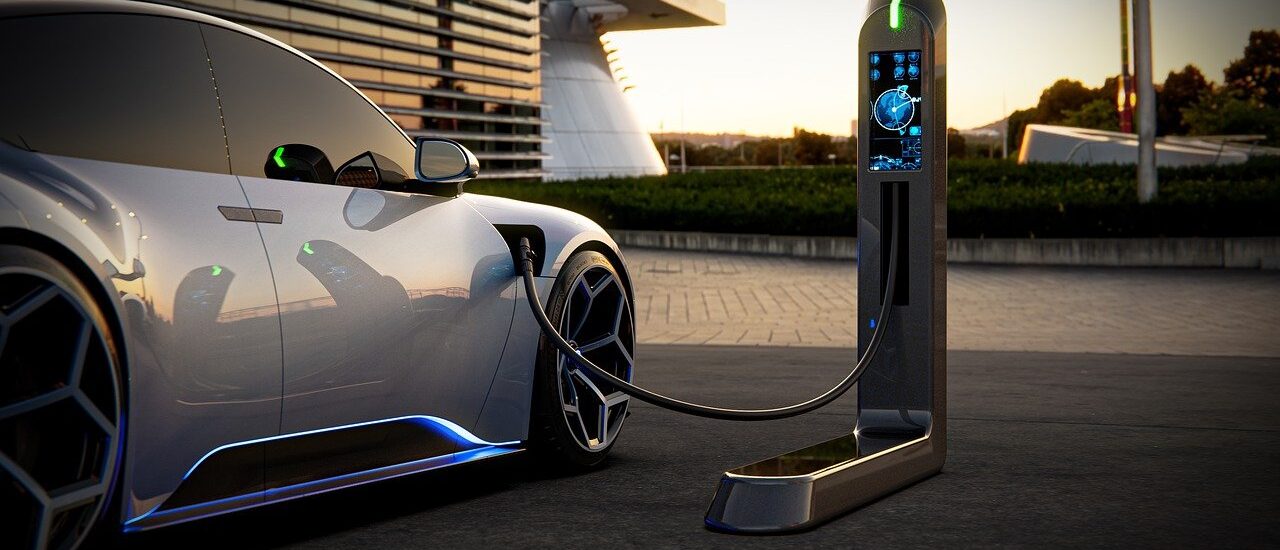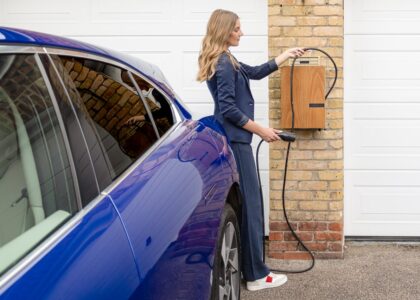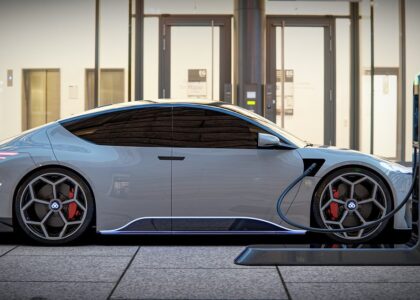Understanding the Different Types of EV Chargers: A Comprehensive Guide
As the electric vehicle (EV) market continues to grow, the variety and complexity of EV charging options expand as well. Whether you’re an EV owner, a business looking to install chargers, or a property manager assessing your infrastructure needs, understanding the different types of EV chargers is crucial. This comprehensive guide explores the various EV charger types, their connectors, power outputs, usage scenarios, and other essential considerations for site assessments.
Introduction to EV Charging Levels
EV chargers are broadly categorized into three levels: Level 1, Level 2, and Level 3 (DC Fast Charging). Each level offers different power outputs and charging speeds, catering to diverse needs and use cases.
Level 1 Charging (120V)
Connector Type: Standard 120V AC outlet (NEMA 5-15)
- Power Output: Typically 1.4 kW
- Charging Speed: Adds about 3-5 miles of range per hour
- Usage: Ideal for overnight charging at home, suitable for plug-in hybrids and some battery electric vehicles (BEVs) with lower daily mileage needs.
Level 1 charging is the most basic form of EV charging. It uses a standard household outlet, making it accessible and easy to use. However, due to its low power output, it’s best suited for vehicles with smaller batteries or for situations where the vehicle can be left to charge for extended periods.
Level 2 Charging (240V)
Connector Types:
- J1772 (SAE J1772): Common in North America for residential and public Level 2 chargers.
- NEMA 14-50: Often used in homes for faster charging; the same outlet used for electric stoves and RVs.
- Tesla Connector: Proprietary connector for Tesla vehicles, but adapters are available for other EVs.
- Power Output: Typically between 3.3 kW to 19.2 kW
- Charging Speed: Adds about 10-60 miles of range per hour depending on the power output.
- Usage: Common for home charging, workplace charging, and public charging stations. It’s faster and more efficient than Level 1, making it a popular choice for most EV owners.
Level 2 charging is a significant step up from Level 1, providing faster charging times and greater convenience. It’s the preferred choice for most EV owners, whether charging at home, at work, or in public. The J1772 connector is widely used, ensuring compatibility across a broad range of vehicles, while Tesla’s proprietary connector offers high-speed charging for Tesla owners.
Level 3 Charging (DC Fast Charging)
Connector Types:
- CHAdeMO: Used primarily by Japanese manufacturers like Nissan and Mitsubishi.
- CCS (Combined Charging System): Common in Europe and North America, used by most American and European automakers.
- Tesla Supercharger: Proprietary fast-charging network for Tesla vehicles.
- Power Output: Ranges from 50 kW to 350 kW
- Charging Speed: Can add 60-100+ miles of range in just 20 minutes, depending on the vehicle and charger capacity.
- Usage: Ideal for long-distance travel and quick top-ups. Found at highway rest stops, major urban centers, and dedicated charging hubs.
Level 3, or DC fast charging, is designed for rapid charging, making it ideal for long trips and quick recharges. The CHAdeMO and CCS connectors are the most common, with CCS becoming increasingly popular due to its faster charging capabilities and widespread adoption by automakers. Tesla Superchargers offer unparalleled charging speeds for Tesla vehicles, facilitating long-distance travel with minimal downtime.
Tesla Charging
Connector Types:
- Tesla Connector: Used for both Level 2 and Level 3 (Supercharging) by Tesla vehicles.
- Adapters: Tesla vehicles come with adapters to use J1772 and CHAdeMO connectors, enabling charging at non-Tesla stations.
- Power Output: Up to 250 kW at Supercharger stations.
- Charging Speed: Adds up to 200 miles of range in about 15 minutes at the highest power output.
- Usage: Primarily used by Tesla owners, though Tesla is expanding access to other EVs at select Supercharger locations.
Tesla’s proprietary charging network and connectors provide fast and convenient charging options for Tesla owners. The availability of adapters allows Tesla drivers to use a variety of charging stations, increasing flexibility and accessibility.
Other Global Standards
GB/T (China):
- Connector Types: Used exclusively in China, with separate connectors for AC and DC charging.
- Power Output: AC up to 7.4 kW, DC up to 360 kW.
- Usage: Standard for EVs sold in China, catering to a vast and rapidly growing EV market.
Type 2 (Mennekes) (Europe):
- Connector Type: Used for both Level 2 and Level 3 charging in Europe.
- Power Output: AC up to 22 kW, DC up to 350 kW (CCS Combo 2).
- Usage: Standard in Europe, compatible with a wide range of European and some international EVs.
The global EV market features different standards tailored to regional needs and regulations. The GB/T connector is specific to China, while the Type 2 connector is predominant in Europe. Both systems support high-power charging, facilitating the rapid expansion of EV adoption in their respective markets.
Charging Networks
Public Charging Networks:
- ChargePoint, Electrify America, EVgo: Major networks in North America offering Level 2 and DC Fast Charging. They use a mix of J1772, CCS, and CHAdeMO connectors.
- Ionity: A European network focusing on high-power DC fast charging using the CCS connector.
- Tesla Supercharger Network: Exclusive to Tesla vehicles but expanding to other EVs in some regions.
Residential Charging:
- Home Chargers: Many EV owners install Level 2 chargers at home for convenient overnight charging. Popular brands include ChargePoint, ClipperCreek, and Wallbox.
- Smart Chargers: Advanced home chargers offer features like Wi-Fi connectivity, energy monitoring, and integration with home energy management systems.
Charging networks play a crucial role in the EV ecosystem, providing the necessary infrastructure to support widespread EV adoption. Public networks ensure that EV drivers can find charging stations conveniently located along their routes, while residential chargers offer the convenience of home charging.
Considerations for EV Site Assessments
When planning EV charging installations for workplaces, multi-family buildings, and real estate investment trusts (REITs), several factors need to be considered:
1. Electrical Infrastructure:
- Capacity: Ensure the building’s electrical system can handle the additional load of EV chargers. This may require upgrades to the electrical panel or service connection.
- Load Management: Implement smart charging solutions to manage the load and prevent overloading the system, especially during peak hours.
2. Location and Accessibility:
- Placement: Strategically place chargers to maximize convenience and usage. Consider factors like proximity to parking spots, ease of access, and visibility.
- Signage: Clear signage helps drivers locate charging stations and understand how to use them.
3. User Needs:
- Vehicle Types: Assess the types of EVs that will be using the chargers and ensure compatibility with various connectors.
- Usage Patterns: Understand the typical charging behavior of users to determine the appropriate mix of Level 2 and DC Fast Chargers.
4. Financial Considerations:
- Costs: Factor in the installation, maintenance, and operational costs of the chargers. Look for available incentives and rebates to offset costs.
- Revenue Models: Explore different business models, such as pay-per-use, subscription services, or offering free charging as an amenity to attract tenants or customers.
5. Future-Proofing:
- Scalability: Design the installation to allow for future expansion as EV adoption grows.
- Technology Upgrades: Stay informed about advancements in charging technology and be prepared to upgrade or replace chargers as needed.
Understanding the different types of EV chargers and their respective connectors, power outputs, and usage scenarios is essential for anyone involved in the EV ecosystem. Whether you’re an EV owner looking to optimize your charging experience, a business planning to install chargers, or a property manager assessing infrastructure needs, this comprehensive guide provides the insights necessary to make informed decisions.
By considering factors such as electrical infrastructure, location, user needs, financial considerations, and future-proofing, you can ensure a successful and efficient EV charging installation. As the EV market continues to evolve, staying informed about the latest developments and best practices will be key to supporting the transition to a sustainable, electrified future.




